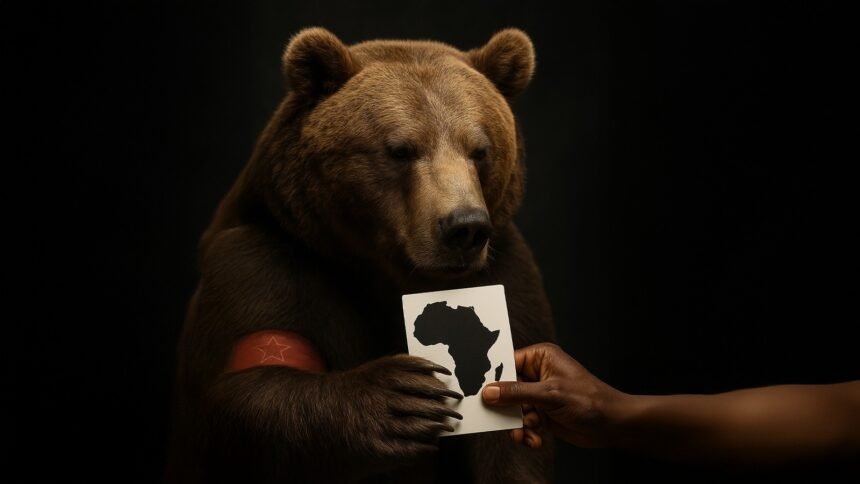For much of the last decade, Russia has tried to sell itself as Africa’s “reliable partner,” a counterweight to the West and China, ready to offer security, grain, and a dash of anti-colonial rhetoric. But as 2025 draws to a close, the Kremlin’s grand African strategy looks more like a chessboard turned upside down. A string of setbacks — military, diplomatic, and economic — is now threatening Moscow’s carefully crafted image as the continent’s indispensable friend.
The latest reports out of several African capitals paint a picture of a country struggling to keep its foothold. Russia’s security partnerships, once touted as the crown jewel of its engagement, are fraying. In Mali, for example, the mercenary presence that replaced French forces has been mired in accusations of human rights abuses and escalating clashes with jihadist groups. Far from stabilising the region, the Russian-linked Wagner remnants (rebranded under Moscow’s Ministry of Defence) have become targets themselves, with some bases reportedly abandoned after sustained rebel attacks.
Meanwhile, in the Central African Republic (CAR), where Russia once enjoyed a near-monopoly on security contracts and political influence, the mood is shifting. Local leaders are reportedly frustrated with Moscow’s slow delivery of promised aid and arms, and there are whispers that some factions are seeking alternative partners — including a cautious return to European training missions. That is not exactly the kind of headline the Kremlin likes to see.
Russia’s economic promises are also falling flat. Moscow had pledged massive grain shipments to African nations after pulling out of the Black Sea grain deal, framing itself as a saviour of global food security. But delivery delays, logistical nightmares, and a Russian economy stretched thin by the war in Ukraine have meant that many African countries are still waiting for the benefits. Some analysts note that Russia’s grain diplomacy has become a series of photo opportunities and press releases rather than a reliable lifeline.
Adding to the embarrassment are cracks in Russia’s diplomatic charm offensive. Summits that once drew enthusiastic attendance from African leaders are now reportedly seeing more cautious engagement. Observers say that while many African governments still value Russia’s rhetoric about a “multipolar world,” they are becoming wary of over-relying on a partner whose capacity to deliver is increasingly in question.
The optics matter. Russia had used its African outreach to show its own citizens — and the West — that it was far from isolated. The sight of African leaders shaking hands with Vladimir Putin on the sidelines of Sochi or St. Petersburg summits was meant to project strength and legitimacy. Now, with fewer deliverables and growing disillusionment, that projection is harder to sustain.
Geopolitically, Russia also faces competition. China remains the continent’s largest trading partner, pouring billions into infrastructure projects. The United States has quietly stepped up security cooperation in places like Niger and Ghana. Even Turkey and the Gulf states are increasing their presence, offering investment packages that Moscow cannot easily match. In short, Russia’s once relatively uncluttered playing field in Africa is getting crowded.
This is not to say Russia is about to disappear from Africa. Its networks of military advisors, private contractors, and intelligence operatives still wield influence, and many African governments continue to appreciate Moscow’s willingness to offer security assistance with fewer strings attached than Western powers typically require. But the image of a confident, unstoppable Russia expanding across the continent has taken a serious hit.
The cheekier observers in international circles have started calling this the “Great Russian Retreat” — not from Africa entirely, but from the idea that Moscow can effortlessly replace Paris, Washington, or Beijing as the continent’s partner of choice. The truth is that African nations are pragmatic and have no qualms about switching allegiances when deals no longer serve their interests.
In the months ahead, Russia will have to decide whether to double down on its Africa push — risking more resources and personnel — or quietly scale back its ambitions and focus on shoring up what influence it can maintain. Either way, the days of easy wins and splashy announcements seem to be over.
For African nations, this may actually be a good thing. A Russia that must compete harder for influence could be a Russia that offers better deals, more accountability, and a more serious commitment to long-term development rather than short-term propaganda wins.
For now, though, the story is clear: Moscow’s African playbook is fraying at the edges, and everyone — from Paris to Beijing to Washington — is taking notes. The Kremlin might not be out of the game, but it is no longer dictating the rules.











